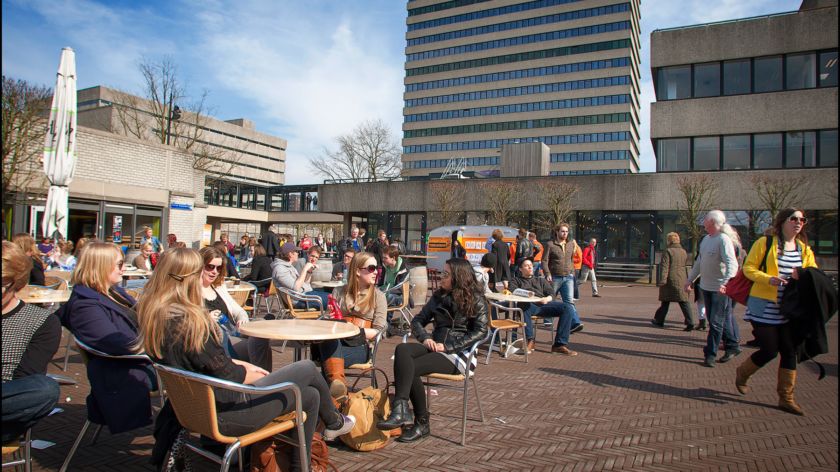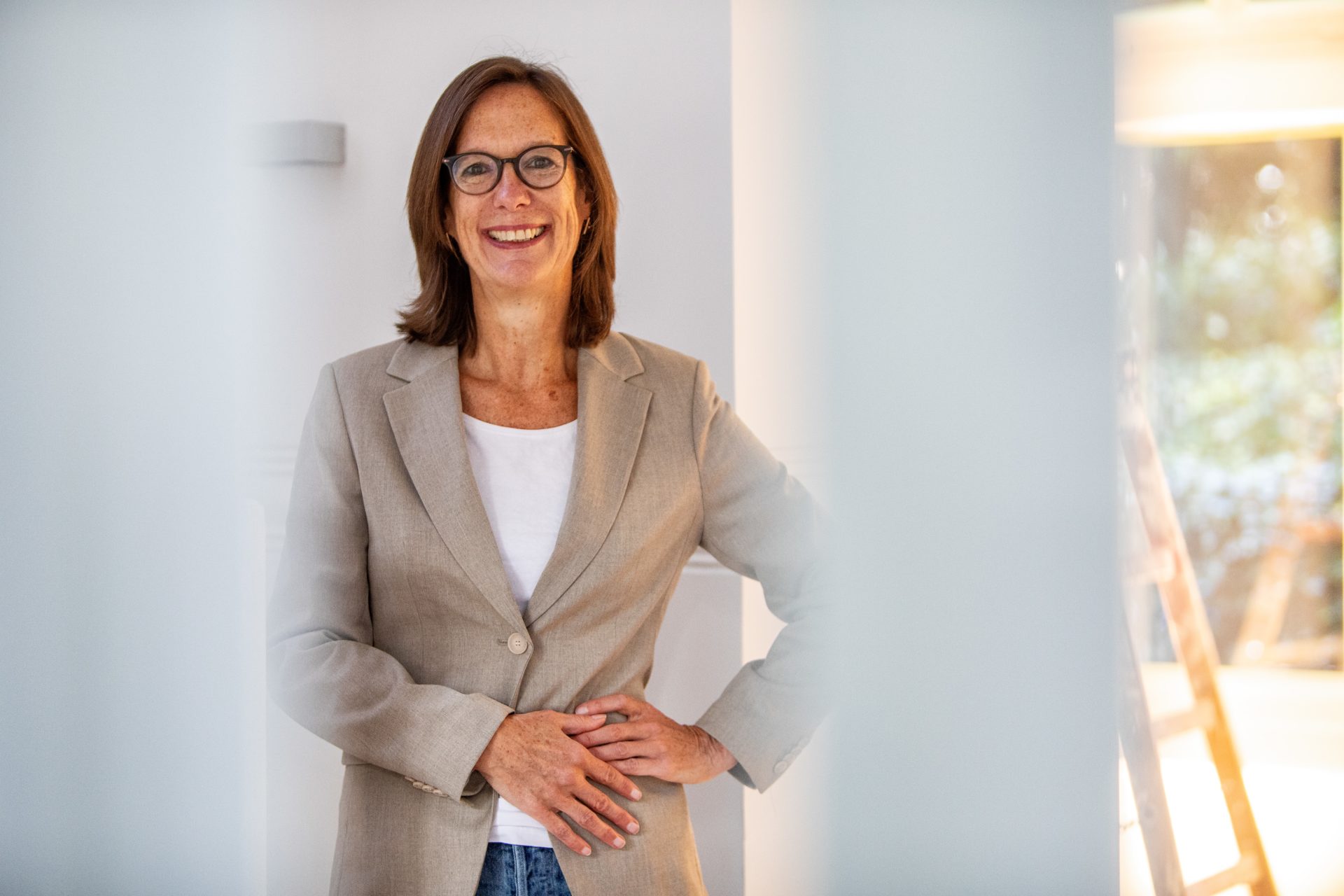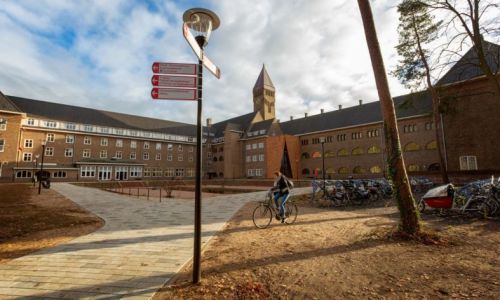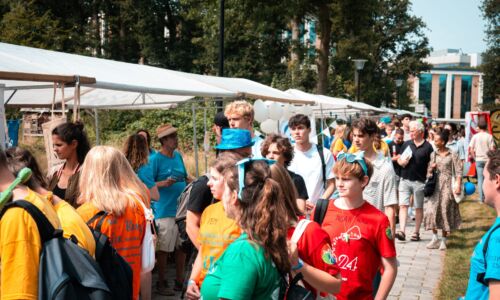A building like the CC, solely for lecture halls, will not be coming back
-
 The Culture Café, in front of the CC. Photo by Dick van Aalst.
The Culture Café, in front of the CC. Photo by Dick van Aalst.
According to the new Campus plan, the Collegezalencomplex will have to make way for a Meeting Centre in 2030. It is not yet clear if the same number of lecture halls will be made available elsewhere.
It was already known that the Spinoza building was slated for demolition. But it comes as a surprise to many employees and students that the CC will also have to go. For generations, students have attended lectures there, or enjoyed a drink at the end of the day. What exactly are the plans?
Written Off
The Campus plan for 2030, which was discussed by the Executive board with the participational bodies this week, states that there will be a Meeting Centre on the current CC site. ‘The Collegezalencomplex dates back to 1977’, vice chair Agnes Muskens explains via Zoom. ‘That means that it is now structurally depreciated.’ The building is no longer up to code with modern sustainability requirements.
Additionally, with its grey bricks and closed walls, the Collegezalencomplex is ‘turned inwards’ (according to the Campus Plan); it is very different from the new Maria Montessori building, for instance. ‘We want buildings that are open and transparent’, Muskens says.

Right now, the CC is used solely for education. Most of the space is occupied by five large- and smaller lecture halls. In its new vision for the campus, the Executive Board wants to combine education and research wherever possible. For example, the new building for Arts and Philosophy, which is to be built in place of the current Spinoza building, will have both lecture halls and workspaces. According to Muskens, a separate building dedicated to lecture halls is no longer desirable. She cannot yet state whether all CC lecture halls will be moved to the buildings set to be constructed between now and 2030.
‘That depends on the educational vision that is currently being written and will likely be published towards the end of the calendar year. The buildings will be adapted to that vision: they are intended to facilitate, not to lead.’
Café
Muskens emphasizes that the buildings have not yet been detailed. They may contain large lecture halls ore smaller educational spaces, depending on the need. The Campus Plan does state that the Honours Academy and the Teaching and Learning Centre, among others, will be given a spot in the Meeting Centre. The footbridges between the Refter and the UB will be removed. There will be a café in the new Meeting centre and there are going to be multipurpose rooms for conferences, for instance.
‘The renovation of the campus is a gradual process’, according to Muskens. ‘The demolition of the Spinoza building and the move of Arts and Philosophy from the Erasmus building are at the front of that process, while the Meeting Centre is at the very back. We will remain flexible, so that we can see how the buildings can best be worked out as we move along.’ Architects have yet to be hired, and there will also be several opportunities for consultation with the various users.
‘The renovation of the campus is a gradual process’
According to Muskens, Radboud employees want to keep a hybrid working environment in the future, as shown by a survey held after the corona pandemic. In this case, hybrid means working on campus part of the time and from home other times. The era when everyone was guaranteed their own workspace at the university is definitely at an end. However, Muskens says that the new buildings will not have open-plan offices, which many university employees feared.
‘For each activity, we want to see where it can be done the best. Sometimes that’s at home – for which we will facilitate home offices. Sometimes that’s in a quiet space, and I won’t rule out that someone who works on campus five days of the week will have a fixed workspace. But we will also be sharing workspaces, to prevent vacancies two or three days a week. This is done for sustainability considerations. We want colleagues to discuss amongst themselves what the best solution is for them.’
Students
The Executive Board wants students to come to campus. They’re not supposed to continue following their education from home. ‘We are convinced that meetings on campus are beneficial to the learning curve and the development of academic skills.’
It may be the case that lecture halls will be temporarily unavailable because a building is being torn down when the new one is not yet up. In those cases of overlap, the city theatre or another building in Nijmegen can provide a temporary solution, Muskens says.
It is not yet known who will realise and rent out the student living facilities in the Erasmus building. But first the Campus Plan needed to be approved by the Supervisory Board; this happened last Friday. ‘Now we can take the next steps.’



